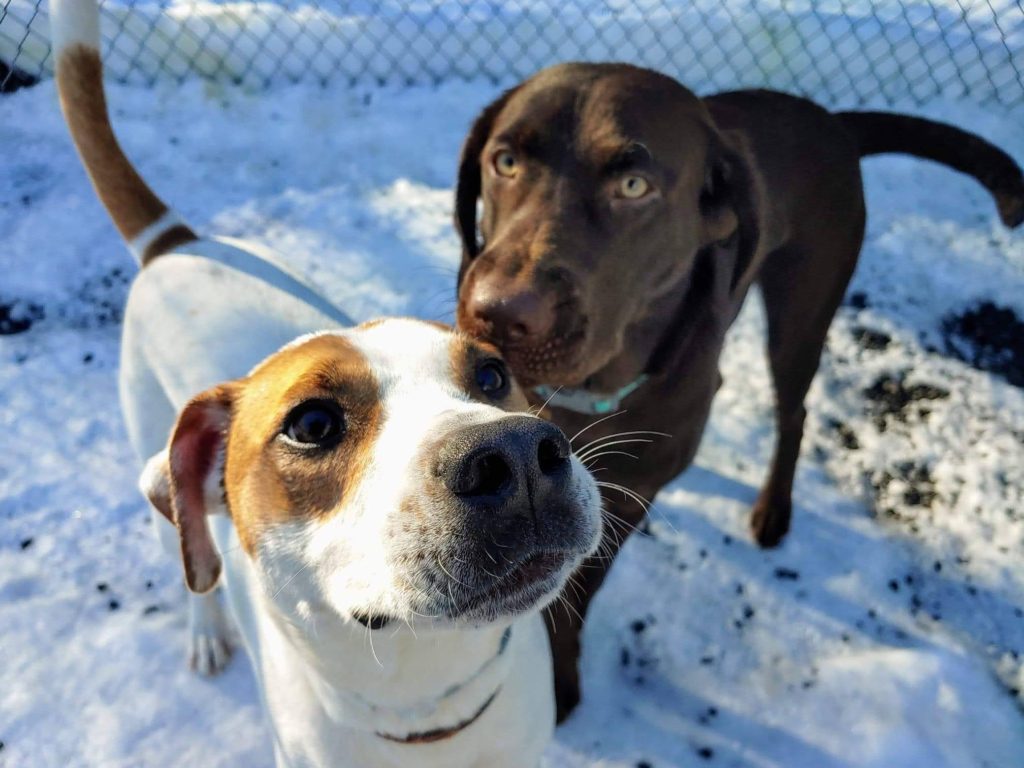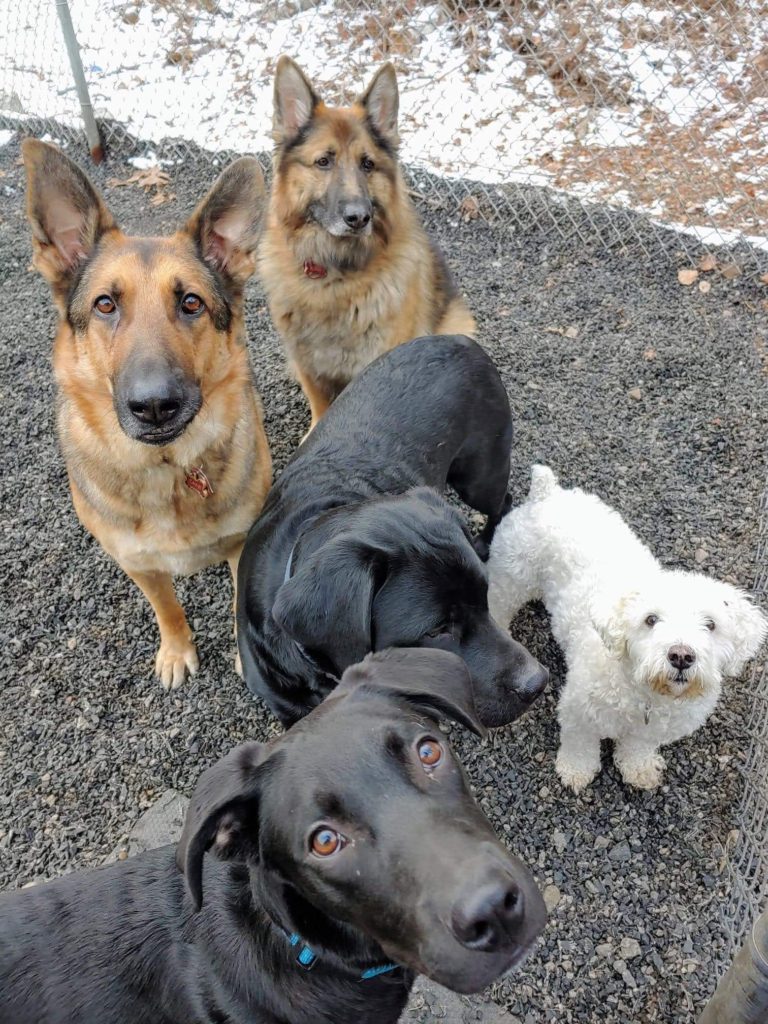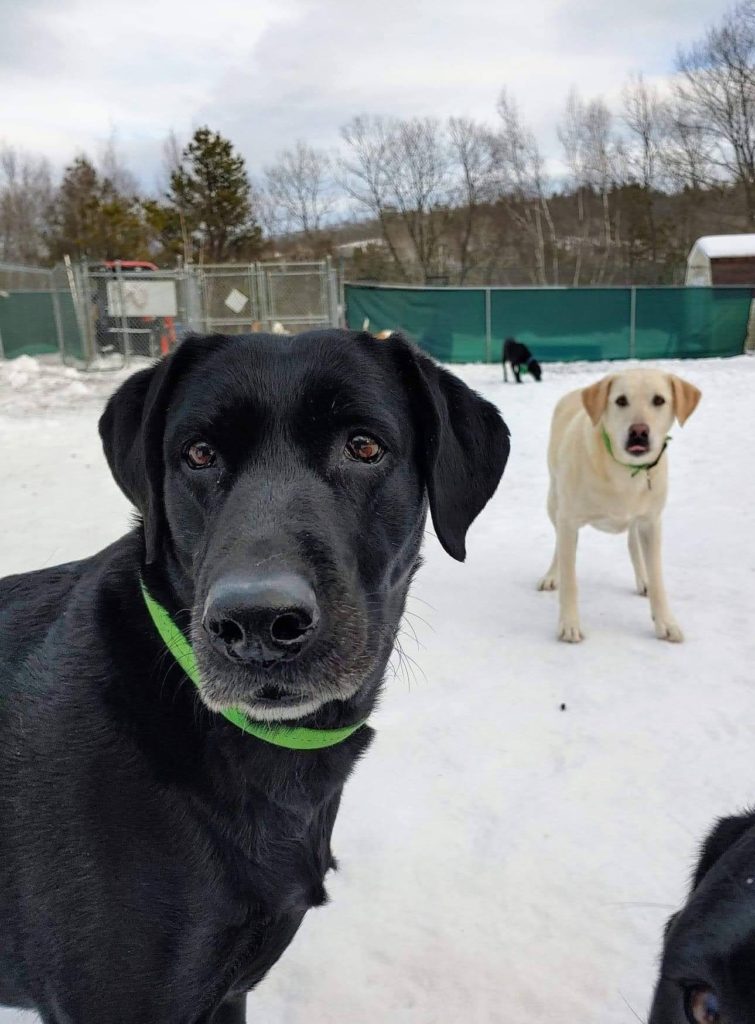Canine Cough and Upper Respiratory Infections
One of the risks of sending your dog to any highly populated area is exposure to illness. Just like sending your kid to daycare, there is a chance they’ll come home with a cold.
One of the most common illnesses is canine cough, which presents as a honking cough that may cause your dog to throw up some foamy bile. Kennel cough’s incubation period is 2-14 days, which means it could spread right under our noses and we might not even know until a dog is already home from their stay with us. Dogs with the bordetella vaccine can still get kennel cough, and young dogs/dogs that haven’t been exposed to group settings with other dogs are also more likely to get it.
We will always report an outbreak of kennel cough to owners, via email and phone.
In an effort to prevent the spread of the cough, we disinfect all play spaces, clean rooms frequently, clean water buckets daily, and have installed air filtration systems. We are as careful as we can be, but daycare for dogs is a lot like daycare for kids: they’re exposed to a lot of new things. Most dogs that attend daycare on a regular basis build up an immunity, but there are different strains, so be aware that if your dog is just starting daycare, they may pick up a cough. Most often, it’ll go away on its own, but you can contact your vet for antibiotics if the cough is persistent. Dogs can also be given honey or natural children’s cough medicines (we use Zarabee’s, please check to make sure your pup can digest all ingredients in the medication you are looking to buy, and always consult your vet).
Upper Respiratory Cough
As of 2021, there is an upper respiratory cough going around dogs throughout New England. We stay in close communication with local veterinarians to track illnesses. The incubation period for this bacterial cough is unpredictable, and can also present as a congestion, such as trouble breathing or a stuffed up nose, sneezing, or with a wheezing cough. This upper respiratory cough can turn into pneumonia in older dogs of if untreated for long periods of time. Contact your vet if a cough persists and they can put your dog on antibiotics, most commonly Doxycycline.
The length of this cough varies from a few days to a couple weeks. We are deep cleaning our play spaces and kennels, separating coughing dogs, and taking all precautions possible. There are no vaccines for this illness, and it hasn’t targeted any specific age groups. Again, most often dogs that have not been exposed are more likely to contract it, but this isn’t always the case.
Just like with kennel cough, we make sure to communicate with owners as this disease spreads. Feel free to call and check in before your dog’s stay with us and we will let you know how many cases we’ve seen in the weeks leading up to their boarding.
Feel free to call with questions!









